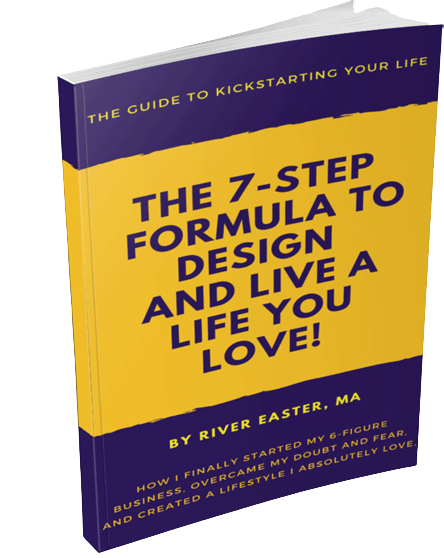In February there is much ado about Valentine’s Day and being in love with another. Well, let’s switch this up: I invite you to be in love with yourself. This is a healthy love for yourself. Self-love is about appreciating oneself. You care for yourself and your emotional and physical well-being. Your needs matter and you take the time to care for yourself through your habits, thinking, and actions.
The modern world we live in promotes more self-loathing than self-love. There is a predominant view that our basic nature is flawed and we are not enough. We don’t deserve to be loved or happy with exactly who we are now. We strive to be different by working, dieting, exercising, achieving, and overcommitting ourselves in order to achieve and prove ourselves worthy and lovable.
Too often we sacrifice our own needs for the needs of others. We try to please others by saying yes when we really wanted to say no. We feel a sense of obligation rather than joy from serving others.
We have been raised by the yardstick of being “self-reliant” and “independent.” Needs are therefore shameful. Tara Brach says it well in her book Radical Acceptance. “By teaching us that something is fundamentally wrong with us, our parents and culture carry forth the message of Eden. As we internalize this view of our nature, we become ensnared in the trance of unworthiness.”
No wonder we have a difficult time giving ourselves self-love, kindness, and compassion. Desmond Tutu says we have our nature backwards. The Dalai Lama reminds us in his teachings that our basic nature is Buddha nature, or goodness. Spiritual teachers of all traditions urge us to wake up to our true nature of love. We have the opportunity to awake to our true nature of wisdom, compassion, and true goodness.
The good news is that practicing self-love, kindness, and compassion have many emotional and physical benefits.
Research shows self-love decreases the stress response and promotes healing
Benefits include heightened well-being, improving mental health, boosting immune system function, and increasing a sense of connection with others.
A study published in the journal Clinical Psychological Science showed that students who focused on thoughts of kindness toward themselves and others reported increased self-compassion and decreased self-criticism.
Kind and positive thoughts also influence our health. Lead researcher Anke Karl said, “By switching off our threat response, we boost our immune system and give ourselves the best chance of healing.”
Self-love influences your behaviors and actions. You are more likely to make healthy choices for yourself, such as resting, eating healthier foods, and choosing exercise over binge-watching Netflix.
Here is a list of seven practices you can try for adding more self-love and kindness in your life. Try one out for a month. Add in another practice for the second month. Notice your sense of well-being and how that affects the choices you make in your daily life.
1 Mindfulness
Awareness of thoughts and feelings without judgment. The key words here are “without judgment.” I remember a time when I didn’t have much awareness of my thoughts and feelings. I spent years studying nonviolent communication and other emotional intelligence studies to build my capacity to embrace, acknowledge, and accept my feelings and and needs. This is a skill we aren’t taught and yet one that we can learn. When you notice anxiety, worry, doubt, or fear, you can pause, close your eyes, and take three deep, slow breaths. Exhale through your mouth as if you are breathing out through a straw (this sends a signal to your brain that you are safe), and notice your thoughts and feelings. Name them. (You can use my Universal Human Feelings and Needs download here: If you notice yourself judging your thoughts, let them move through your mind like a leaf floating down a river.
2 Reframe Negative Self-Talk
If you are breathing, you most likely have noticed an inner critic. Don’t berate yourself for having negative thoughts. Berating yourself brings up more feelings of guilt and shame. It’s normal and unavoidable. You are human. Try this instead: Pause, take three breaths, and ask yourself, “What thought can I focus on that is kind and loving?” This is a practice. It will get easier as you rewire your mind to notice the inner critic and then refocus so that thoughts are kind and compassionate.
3 Kindness and Compassion
Practice kindness and compassion with yourself. Be a soft place to land. If you make a mistake, give yourself some compassion and remind yourself you are in the game. Babe Ruth had the most strikeouts on the road to the most home runs. The Dalai Lama says that our basic nature is goodness. (This is from the Buddhist teachings.) Ask yourself the question, “If my basic nature is goodness, what thoughts of kindness can I have for myself or others?”
4 Forgive Yourself
Practice forgiving yourself for the things you did that you aren’t proud of, those things that you would have done differently or that weren’t aligned with the person you are today. These could be choices, actions, reactions, or things that you didn’t do. Whatever it was, you had a beautiful need. You might have been unskillful, but you had a need. You were at a certain level of awareness at the time. You did the best you could have done at your level of awareness. Even if “that time” was five minutes ago. Holding yourself hostage and not forgiving yourself isn’t going to make you a better person. Loving and forgiving yourself will help you heal.
5 Let That Sh*t Go
Let the past go. If there is something you can do to clean up a mess and make amends, do it! Otherwise, let it go. Take the lessons and leave the rest. Making mistakes and failing is normal This is the natural process of learning and growing. Learn the lesson and move forward.
6 Acceptance
How many times have you wished your life was different? Wished that you were different? Wished the situation or circumstance you were facing wasn’t there? This wishing for something other than reality is a major cause of suffering. Rather than wish something was different, accept reality. Reframe the question from “How can I escape it?” to “How can I use this for something good?”
7 Gratitude
“It’s not happiness that brings us gratitude. It’s gratitude that brings us happiness.” –Anonymous
Gratitude is the magical attitude for experiencing more joy and happiness in your life. The good news is you can generate gratitude. You don’t have to wait to be grateful for something. Nelson Mandela learned how to generate the state of gratitude while living as a prisoner. Gratitude has many benefits from improving physical health to mental well-being. A simple practice is to start a gratitude journal and write down three things you are grateful for each day. Learn more about gratitude from Brother David and the folks at gratefulness.org.



